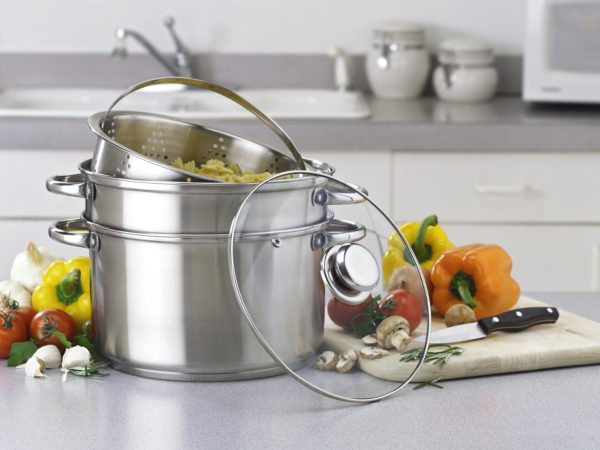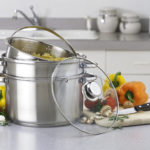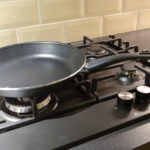Anxious About Anodized Aluminum?
I know that anodized aluminum is less likely to corrode into food, but I’m not comfortable using it. Is anodized aluminum safe for cookware? How harmful is aluminum in general?
Andrew Weil, M.D. | December 7, 2019

Anodized aluminum is sealed so that the metal cannot leach into food or react with acidic foods. Unlike ordinary, lightweight aluminum pots and pans, which are highly reactive with acidic foods (like tomatoes), anodized aluminum cookware is safe. It is also non-stick, scratch-resistant and easy to clean.
Aluminum is the most abundant metal in the Earth’s crust, widely distributed in soil, plants and water. It can be present in the food we eat and the water we drink. Evidence suggests that ingesting aluminum can be harmful to the kidneys and may weaken bones by depleting the body of phosphorus and calcium. There is no recognized need for aluminum in human nutrition, and because it is so chemically reactive, it probably is not healthy for us.
Concerns about the safety of anodized aluminum – and aluminum in general – stem from a proposed connection between aluminum and Alzheimer’s disease. This emerged decades ago, leading to worries about exposure to the metal through food packaging, beverage cans, antiperspirants, antacids and some other medications, as well as from cookware. Some studies have shown increased levels of aluminum in the brains of people with dementia, while others have not. But research has not found an increased incidence of dementia in people with occupational exposure to aluminum, and the consensus today is that aluminum is not a cause of Alzheimer’s disease.
Quality aluminum cookware has a cooking surface of stainless steel or some other material – the aluminum is used only on the exterior surface for its superior ability to conduct heat. Well-made anodized aluminum cookware that doesn’t have any scratches is probably okay as well, but when cooking in ordinary aluminum pots and pans (or scratched anodized cookware), be aware that acidic liquids will react with the metal, which can then get into food. Individuals with the highest exposures to aluminum are those who take aluminum-containing antacids daily or several times a week, but overall, the average human intake is believed to be relatively low, between 30 and 50 mg per day. And it’s estimated we absorb less than one percent of the aluminum we swallow.
Bottom line: Undamaged anodized aluminum cookware is safe.
Andrew Weil, M.D.
Source:
Daniel Perl and Arnold Brody et al, “Alzheimer’s disease: X-ray spectrometric evidence of aluminum accumulation in neurofibrillary tangle-bearing neurons,” Since, April 18, 1980, DOI: 10.1126/science.7367858












